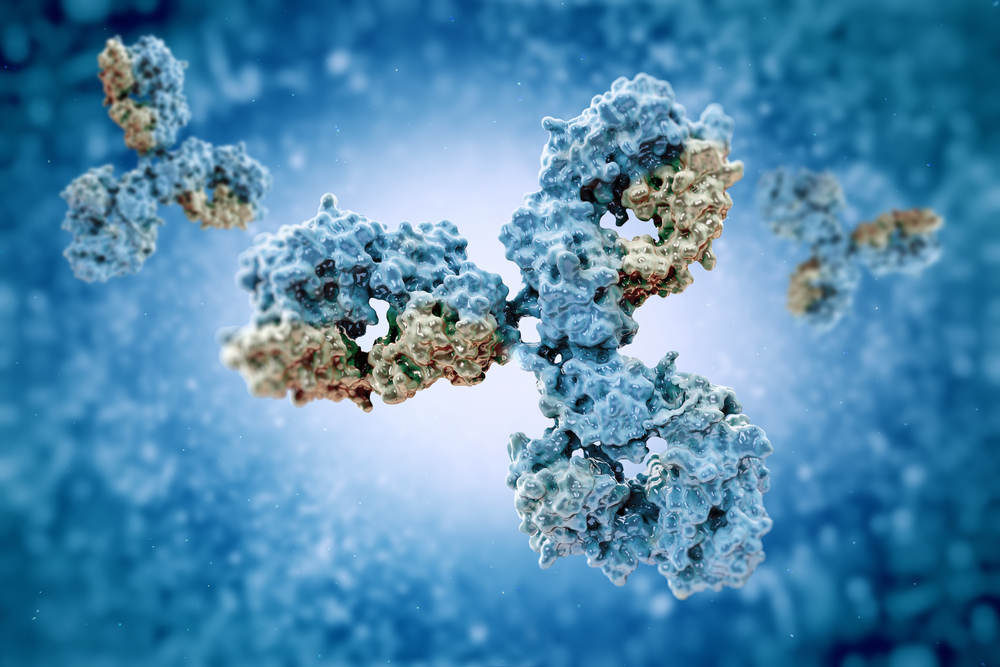ProMIS Neurosciences Develops Antibodies Targeting TDP-43 Aggregates, an ALS Hallmark

ProMIS Neurosciences is advancing its program for amyotrophic lateral sclerosis (ALS) by generating antibodies that specifically target the toxic TDP-43 clumps — a hallmark of the condition.
The antibody candidates may work as therapies for both ALS and frontotemporal dementia (FTD), the company says.
As a result of certain genetic mutations in ALS and FDT patients, the structure of TDP-43 — a protein found in many human tissues that normally stabilizes RNA molecules — is commonly altered, leading to the accumulation of TDP-43 clumps inside nerve cells.
These clumps, which are able to spread from one nerve cell to another, appear to affect the normal function of mitochondria (the cells’ “powerhouses”), eventually leading to nerve cell death. They also seem to correlate with the stage of dementia in these patients, which altogether makes TDP-43 aggregates an attractive therapeutic target for both ALS and FTD.
Since the neurotoxic TDP-34 protein has a different structure from the normal protein, ProMIS used its computational discovery platforms — ProMIS and Collective Coordinates — to predict new target regions (known as disease-specific epitopes) that would be specific for the toxic proteins.
The company now has developed multiple antibody candidates targeting the neurotoxic forms of TDP43, which bind to the toxic cytoplasmic TDP-43 clumps while leaving the healthy nuclear TDP-43 proteins unharmed. This is important as TDP-43 is required for the normal functioning of cells.
Researchers also have tested the antibodies in brain tissue collected from FDT patients post-mortem. In these samples, ProMIS’ antibody candidates also bound selectively to the toxic, misfolded forms of TDP-43, and not to the normal TDP-43 proteins.
The company also is developing antibodies that target protein clumps in multiple other neurodegenerative disorders, including Alzheimer’s and Parkinson’s. In preclinical cellular models of Alzheimer’s, the company’s antibodies prevented the spread of toxic tau aggregates, it recently announced.
“The momentum behind each of our programs is palpable,” Elliot Goldstein, the president and CEO of ProMIS Neurosciences, said in a press release.
“In the past 30 days, we’ve announced data advancing our development programs selectively targeting toxic misfolded proteins for treatment of Alzheimer’s and Parkinson’s disease and Multiple System Atrophy (MSA), ALS and FTD,” he added.






